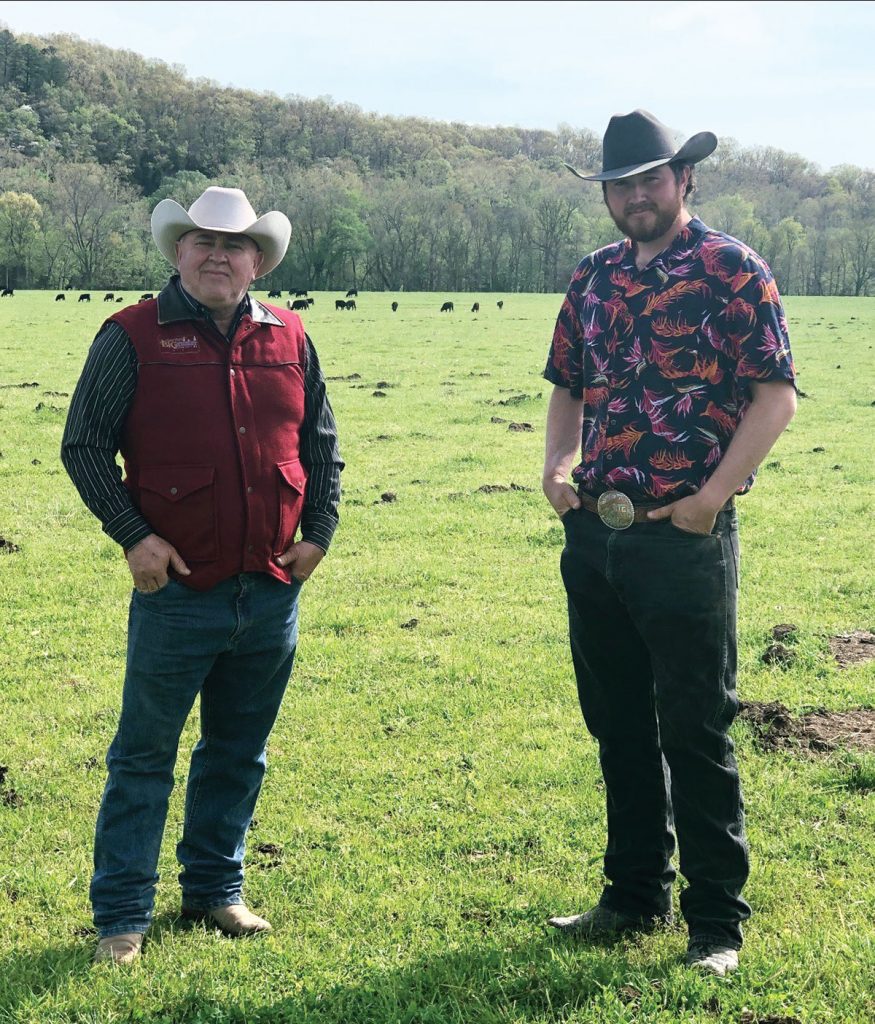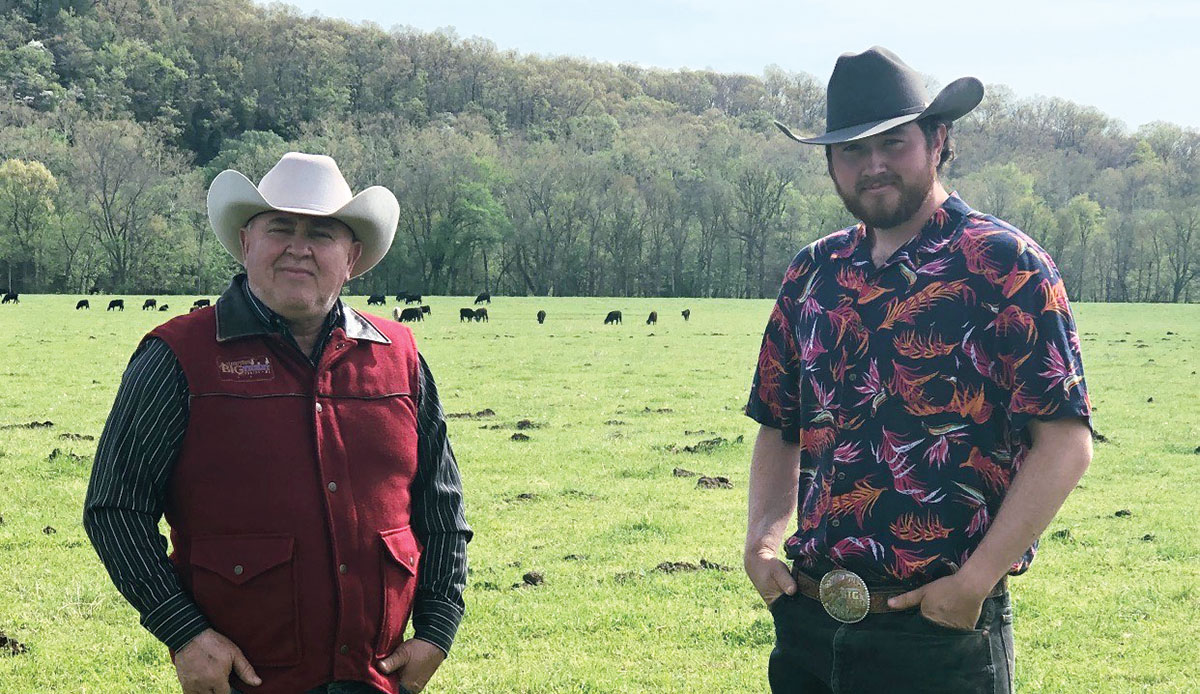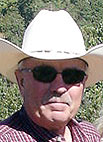
Longtime cattleman says his father always said to care for every calf, the land and to be frugal
David Laughlin and his son Colton have been in the cattle business for many years on their 1,180-acre farm on the Pulaski-Phelps County line.
They run a herd of about 200 Angus cows.
“We don’t do registered cattle with all that record keeping, tagging or even AI,” David explained. “My son uses the computer in much of what he does but I don’t. I’ll use it for gathering information on new equipment or something like that but otherwise, I’m not much of a computer man.”
David comes to his life as a cattleman by way of past generations, including his father Jim Laughlin, his uncle Claude Laughlin and his grandfather Roy.
“’My dad used to say, ‘Take care of the little things,’ and I guess that is what we do, although I like to think I take of the little things as well as the big things,” the veteran cattle producer said. “Little things like even a single calf out there in the field. I try not to let anything go. I think we run a pretty conservative operation, being frugal, you might say, doing a good job on the worming, cutting back on labor costs, that sort of thing.”
David’s father and uncle were ranching partners in years past, and David essentially got his start by buying out his uncle and partnering with his father in his first years in the business.
“We sell everything at the sale barn, either at Interstate Regional Stockyards at Cuba or South Central Regional Stockyards at Vienna. Primarily, we sell black Angus. I’ve done other breeds in the past and I like red cattle. I’ve had some good Limousins and blue-nose Charolais over the years but the customers seem to prefer black cattle. That’s where the market holds the best so that’s where you have to go, where the market is, to satisfy the customer.
“There are a lot of shrewd people out there in the cattle market today so it pays to listen. During the good times, we try to set a little back and during the uncertain times, like now, we have to hold on a little bit longer and a little bit tighter. I felt like the cattle market was starting to come back at the end of February and beginning of March but then we all got a big surprise overnight,” he added with a laugh.
The Laughlins do all of their own haying on 400 to 500 acres of their property. Last year they put up 2,000 5-by-6-foot round bales, all of it for their own use.
“The bottom line is people need to know that beef is a good source of protein and is good food for America,” David said. “We provide good, lean meat that has a lot of healthful benefits, but I think sometimes we get some bad press. Still, there’s nothing like a good grilled steak at the end of the day.”
And the dinner table is a great place to pass along good stories, too, one generation to the next.
“When my father first came into this, they used to run cattle on open range where Fort Leonard Wood is now. There was a Fort Leonard Wood Cattle Company in the area at one time and a calf-roping champion who worked for them named Ben Johnson.
He talked about his son who was out in Hollywood, trying to make a name for himself in the movies. Today, we all remember that cowboy with the instantly recognizable voice, who played John Wayne’s sidekick in a number of movies. His real name was Ben Johnson Jr.”
The cattle stories from one generation to another live on with folks like David Laughlin.
Thinking back on the ups and downs David has seen in the cattle market over the years, he recalls the stories told.
“I heard an old man say once, ‘you hold onto an old cow’s tail and she may drag you into the river but if you hold on long enough, she’ll drag you out the other side eventually’ and I think that’s where we are right now.
“My son Colton is the fourth generation in our family to be in the cattle business and I’m real proud of him. I think all of us need to hold on to that cow’s tail just a little longer and she’ll get us out of this.”







